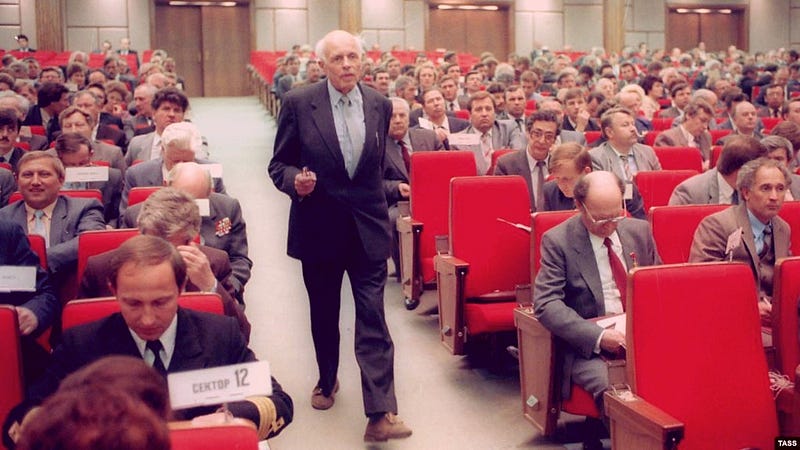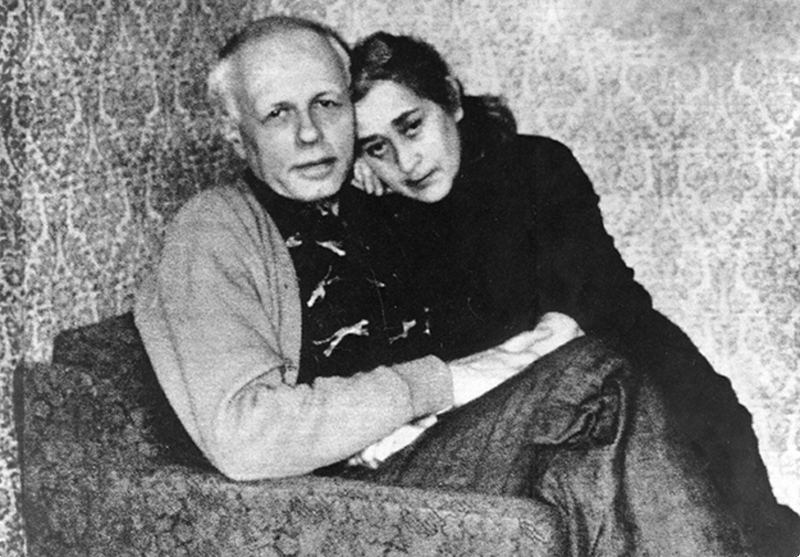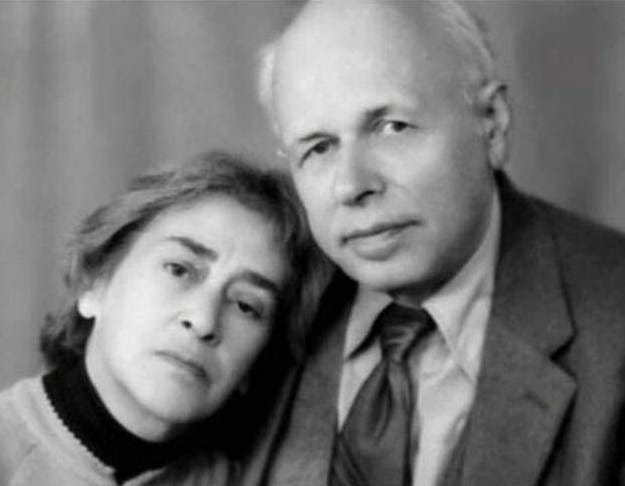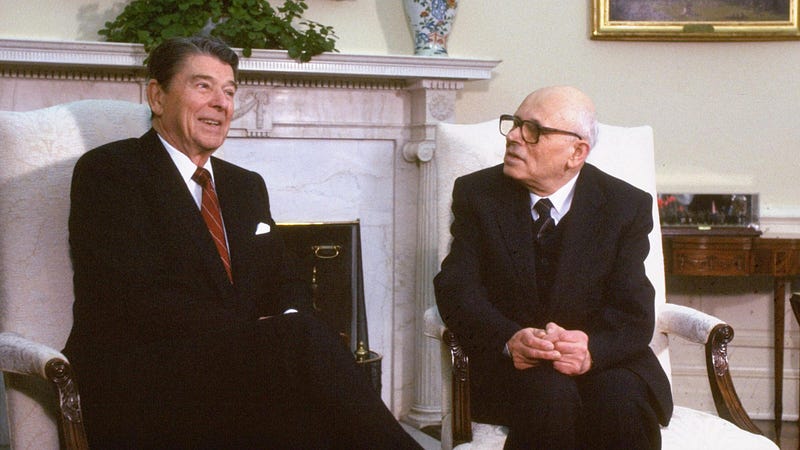Andrei Sakharov's Enduring Impact on Modern Thought
Written on

As 2019 comes to a close, it offers a moment to reflect on a significant anniversary that went largely unnoticed. On December 14, thirty years ago, the world lost Andrei Sakharov, a monumental figure of the 20th century known for his commitment to freedom and human rights. His legacy is particularly striking in today's climate, where anti-liberal populism and nationalism are on the rise, making his advocacy for liberal and universal values under Soviet oppression more relevant than ever.
Sakharov emerged as an unexpected dissident. A distinguished physicist who contributed to the Soviet nuclear arms program and is often regarded as the father of the hydrogen bomb, he belonged to the privileged Soviet elite. His political engagement began in the early 1960s, initially focused on scientific concerns related to atmospheric nuclear tests and missile defense systems, which he believed undermined deterrence. His efforts to foster public discourse on these matters were met with resistance, thus igniting his path as a dissident.
In 1968, Sakharov penned "Reflections on Progress, Peaceful Coexistence and Intellectual Freedom," which he shared with Party officials and fellow scientists, ultimately reaching foreign journalists. At that time, he was so obscure that some assumed he was merely a pseudonym for another dissident. That July, the New York Times published his essay, alongside a profile of him as a vocal critic within the Soviet scientific community.
Interestingly, Sakharov's positions were not overtly anti-Soviet at that time. He critiqued Soviet censorship and repression while also acknowledging the USSR's achievements in material and social welfare. However, he posited that capitalism had made significant strides for the masses as well, despite ongoing issues like racial inequality in the United States. He envisioned not just coexistence, but a "convergence," where both systems could learn from each other.
Over time, Sakharov's views evolved towards a more radical critique of Soviet socialism. However, even his 1968 stance was deemed unacceptable by the Soviet authorities. He was soon prohibited from military-related projects, although he continued his theoretical physics research while increasingly focusing on human rights advocacy. In 1970, he co-founded the Committee on Human Rights in the USSR.
That same year marked a turning point in his personal life: following the death of his first wife Klavdia, he met Elena Bonner, a pediatrician and former Army nurse. They married two years later, forming a partnership that became emblematic of love and activism.

Sakharov's advocacy for political prisoners and Jewish activists seeking the right to emigrate garnered him international acclaim, culminating in the 1975 Nobel Peace Prize. However, it also led to increased harassment from the KGB.
In 1980, his condemnation of the Soviet invasion of Afghanistan prompted the regime to act. He was arrested, stripped of his honors, and exiled to Gorky, a city inaccessible to foreigners. Initially, Bonner was his only connection to the outside world, but in 1984, she too faced punishment for "anti-Soviet agitation," confining them both to Gorky without even a telephone.
During his nearly seven years of confinement, Sakharov endured multiple hunger strikes and brutal force-feeding. He faced theft of his writings and constant surveillance, as well as hostility from local citizens incited by state propaganda.

Bonner, of partial Jewish descent, faced particularly vicious attacks from Soviet media, portraying her as a manipulative figure exploiting Sakharov. This narrative, propagated by both the state and former allies like Alexander Solzhenitsyn, sought to undermine Sakharov's credibility.
The political climate shifted with Mikhail Gorbachev's rise, leading to Sakharov's eventual return to Moscow in December 1986. Gorbachev himself called to inform Sakharov he could return and resume his "patriotic work," but Sakharov used the opportunity to advocate for the release of political prisoners.

By the spring of 1989, Sakharov was elected to the newly formed Soviet Congress of People’s Deputies. Although he was joined by some reform-minded individuals, many deputies remained loyal to the old Soviet system. He became known for his radical proposals, including the legalization of multiple political parties, and often found himself at odds with Gorbachev.
On June 3, he faced condemnation for comments regarding Soviet military actions in Afghanistan, yet he remained steadfast in his beliefs. In retrospect, Sakharov's impact on Russian history remains a topic of speculation. On December 14, 1989, he died unexpectedly at his desk, leaving behind a legacy that prompted around 100,000 mourners to pay their respects.
Bonner, who outlived her husband by over two decades, continued to advocate for his ideals, although she grew increasingly disillusioned with the state of his legacy. She eventually moved to the United States to be closer to her children, and I had the honor of meeting her multiple times.

At the time of Sakharov’s passing, his values—freedom, human rights, and international cooperation—seemed to be gaining traction. Yet today, these ideals face significant challenges, particularly in Russia, where a resurgence of authoritarianism and a cult of Stalin threaten their relevance. The West, too, grapples with rising tribalism and intolerance. In 2008, during a Harvard conference marking the 40th anniversary of his essay, Bonner lamented that both Russia and the U.S. were learning the worst from each other.
Sakharov is still commemorated globally, with various places named in his honor, including Sakharov Avenue in Moscow and Sakharov Plaza in Washington, D.C. Numerous awards, such as the European Parliament's Andrei Sakharov Prize, continue to celebrate his contributions.
Yet the question remains: what does Sakharov's legacy mean today? In a recent address, writer Masha Gessen attempted to align him with contemporary leftist ideals, interpreting his 1968 essay as a call for social change. However, Sakharov’s original work did not make such claims, focusing instead on the necessity for developed nations to assist underdeveloped countries.
While Gessen acknowledges that Sakharov's later works evolved away from earlier ideas, it is clear that he remained committed to principles beyond the political spectrum. His emphasis on the moral foundations of political activism stands out as a core tenet of his beliefs.
In an era where idealism often seems out of place, Sakharov’s life serves as a powerful reminder that individuals can indeed effect change. In moments of darkness, a turning point may be just around the corner.